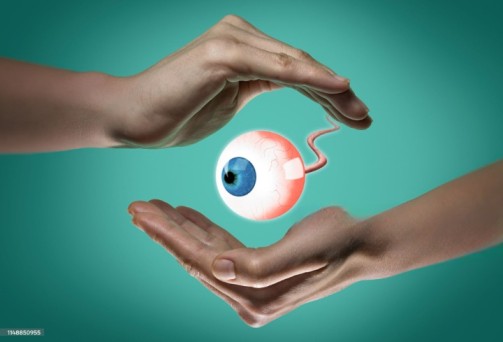Eye Transplant In India: An Overview
Millions of people suffer from irreversible vision loss, prompting eye doctors to explore replacement options for various parts of the eye. While whole-eye transplants are currently not feasible, advancements in organ donation and transplantation are making the prospect of an eye transplant in India more promising. Researchers predict that whole-eye transplants could become a reality within the next decade. Currently, the term “eye transplant” usually refers to a corneal transplant or keratoplasty, where a damaged cornea is replaced with a healthy donor cornea.
What is an Eye Transplant?
An eye transplant, commonly known as a corneal transplant, involves replacing a damaged cornea with a donor’s healthy cornea. The cornea is the transparent, dome-shaped outermost layer of the eye that allows light to enter, playing a crucial role in vision. A corneal transplant can help regain eyesight, reduce discomfort, and improve the appearance of a damaged or diseased cornea.
Types of Eye Transplants
Several types of eye transplants exist, including:
- Amniotic Membrane Transplantation (AMT): Uses a donor amniotic membrane to promote healing.
- Eyelash Transplants: Restores lost eyelashes.
- Tear Duct Replacement: Replaces damaged tear ducts.
- Retinal Pigment Epithelium Transplant: Aims to restore retinal function.
Why People Choose Eye Transplants
Patients opt for eye or corneal transplants primarily to restore vision when the cornea is damaged. This procedure can also alleviate pain or other symptoms associated with corneal abnormalities. Conditions treated with corneal transplants include:
- Keratoconus: A condition where the cornea bulges outward.
- Fuchs’ Dystrophy: A genetic disorder causing corneal degeneration.
- Corneal Scarring: Resulting from injury or disease.
- Corneal Ulcers: Resistant to other treatments.
- Complications from Previous Eye Surgery.
Diagnoses Indicating the Need for a Corneal Transplant
A corneal transplant may be necessary for conditions that damage the corneas and impair vision, such as:
- Fuchs’ Dystrophy: Where endothelial cells in the cornea die, causing it to swell and thicken.
- Keratoconus: The cornea becomes cone-shaped rather than dome-shaped.
- Infections: Causing irreversible corneal damage.
- Traumatic Injuries: Puncturing or scarring the cornea.
- Bullous Keratopathy: A condition causing blister-like swelling in the cornea.
- Keratitis: An inflammation caused by bacteria, fungi, viruses, or parasites.
Pre-Transplant Exams
Before an eye transplant, doctors conduct various tests to assess the patient’s condition:
- Complete Blood Count (CBC): To evaluate overall health.
- Lipid Profile: To check cholesterol levels.
- X-ray and MRI Scans: To visualize internal structures.
- General Physical Examination: To ensure fitness for surgery.
- Urine Test: To check for infections and kidney function.
- Echocardiography: To assess heart function.
- Neurophysiological Test: To evaluate the nervous system.
Conclusion
India offers relatively affordable eye transplants without compromising on quality. The combination of skilled ophthalmologists and advanced medical equipment makes it a popular destination for those seeking corneal transplants. With continuous advancements, the future of eye transplantation in India looks promising, potentially offering hope to millions with vision loss.





